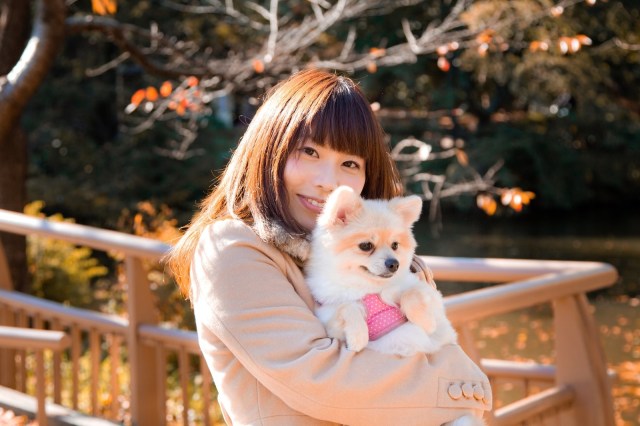“Peaceful life with many dogs” is unacceptable dream, Japanese high school teacher tells student

Does your dream have to be a job?
Some aspects of the Japanese education system are unique to Japan, like, obviously, Japanese literature and history lessons being part of the mandatory curriculum. But there’s also a lot of overlap with assignments kids might get in other countries, such as asking students to write an essay about what their dream for their future is.
That was the situation Japanese elementary school teacher and education author Hiroe Uno’s high school-age daughter found herself in. As you might expect from the daughter of a professional educator, she completed the assignment, but as Uno recently related through her Twitter account, the girl’s teacher refused to accept it.
娘が高校生の時、「将来の夢は?」と問われ「犬に囲まれて平和に暮らす」と書いたら、「まじめに書け!ふざけるな!」と説教された。
— 宇野弘恵 (@hihiroro1717) January 4, 2021
「まじめです!!!本気です!」と憤慨して訴えたけど却下。
将来の夢とは職業であり、現実的かつ実現可能なものであるべきらしい、学校では。
数年経った今も同じ。
So what was the problem? The girl had written that her dream was “To live a peaceful life with many dogs,” only for the teacher to angrily tell her “Don’t screw around! Take this assignment seriously.”
The girl explained that she was serious: a peaceful life with a lot of dogs was honestly the future she wanted. That still wasn’t good enough for the teacher, though, prompting Uno to write “The school felt that the students’ dreams should be jobs, realistic or feasible things. Years later, schools still feel this way.”
There are, of course, two ways to look at the issue. On the one hand, provided you’re an animal lover, a peaceful life with dogs sounds like a pretty swell life. Not everyone wants or needs for their vocation to be a significant part of their personal identity, and if your plan is to draw more of your happiness from your private life than your professional one, there’s definitely some logic in making your ideal leisure time the core of your dream, and leaving drier aspects like how you’re going to pay the bills a less defined detail until it actually comes time to look for a job.
▼ Tranquility and dog-liness both accounted for. The rest will fall into place one way or another.

But on the other end of the debate, once they’re in high school it’s by no means a bad thing to encourage students to start thinking about how they plan to function as self-sufficient members of society. Something as abstract as “animals” isn’t a cause for concern when it’s the professed dream of an elementary schooler, but high school students are just a few years away from adulthood and the need to support themselves. Even if they’re of the mindset that their private life will play the biggest role in determining their happiness, they’re still going to need to earn a living, and with how much time grown-up jobs require, it’s hard to be happy if you have a job you don’t like. Thinking about what sort of profession they would like, or at least wouldn’t mind, will help them plot a course to a job that, if nothing else, won’t have a negative effect on their future happiness, and can motivate students if they can connect those acceptable jobs to school subjects they’re taking or educational institutions they hope to be accepted to post-high school graduation.
▼ Unless you’re lucky enough to find a job that allows pets in the office, you’re going to want a job that doesn’t make you miserable in the several hours a day you spend apart from your pooches.

Ultimately, there’re points to be made on both sides, as reflected in the wide range of comments the story generated, such as:
“What’s wrong with a teacher trying to lead a student towards a realistic goal, like becoming a dog groomer or trainer?”
“But why does the dream have to be connected to a job? That’s the problem.”
“Oh, so it’s better to just say ‘It was a nice dream’ and have it end without coming true? If you can connect your dream to a job, then it helps you live the life you want to live.”
“If you connect your dream to a job, then once you get that job, you no longer have a dream.”
That said, as someone who never imagined during high school that he’d one day have the job or lifestyle he does now, I’m a pretty big proponent of teens keeping their dreams loosely defined, especially if they’re not closing off potential future paths with low grades or poor decisions. At the same time, I can see value in a teacher asking a high schooler “What kind of job do you want to do as an adult?” Properly communicating that question, though, is the teacher’s responsibility. Asking the students “What’s your dream?”, getting upset when one of them doesn’t talk about a job, and then not even being able to politely correct yourself isn’t helping anybody, and really the teacher is just setting himself up for a second draft that says “My dream for the future is to not grow up to be someone like you.”
Source: Twitter/@hihiroro1717 via Jin
Top image: Pakutaso
Insert images: Pakutaso (1, 2)
● Want to hear about SoraNews24’s latest articles as soon as they’re published? Follow us on Facebook and Twitter!
Credit:

0 comments: